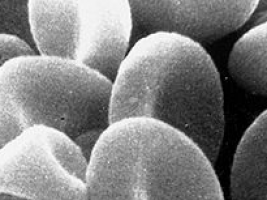
Promising results from the phase 1 portion of the ZUMA-1 study, which uses chimeric antigen receptor (CAR) modified T cells to treat b-cell lymphoma patients, were published in the January issue of Molecular Therapy, the official journal of the American Society of Gene and Cell Therapy.
These results were first discussed at ASH 2016 by co-author Dr Sattva Neelapu.
Axicabtagene ciloleucel (KTE-C19), developed by Kite Pharma, is an autologous chimeric antigen receptor (CAR) T-cell therapy.
In CAR-T therapy using axicabtagene ciloleucel (KTE-C19), T cells are isolated from a patient's blood and engineered in Kite Pharma's central manufacturing facility to target the CD19 protein that is found on lymphoma cells. The re-targeted T cells are then infused back into the same patient. Axicabtagene ciloleucel (KTE-C19) T cells are able to recognise cancerous lymphoma cells that express CD19 and target them for destruction.
The goal of the phase 1 portion of the ZUMA-1 study was to determine the safety of axicabtagene ciloleucel (KTE-C19) as assessed by the frequency of dose-limiting toxicities in patients with diffuse large B-cell lymphoma who were refractory to prior therapy that included anti-CD20 therapy and an anthracycline-containing regimen.
The study included patients who had highly refractory disease, with two to four prior treatments.
This is the first multicenter study of a CAR-T therapy that was produced manufactured at a centrally located facility.
The Moffitt research team, led by Frederick L. Locke, M.D., reports that the manufacturing process for axicabtagene ciloleucel (KTE-C19) was successful for all of the patients and was completed within approximately two weeks.
After the successful manufacturing of axicabtagene ciloleucel (KTE-C19), cells were shipped back to Moffitt and the other participating sites where patients were treated with conditioning chemotherapy followed by infusion with axicabtagene ciloleucel (KTE-C19).
Locke's team found that axicabtagene ciloleucel (KTE-C19) caused expected, but manageable, toxicity over a median follow-up period of nine months.
Of the 7 patients treated with axicabtagene ciloleucel (KTE-C19), 1 patient experienced dose-limiting toxicity of cytokine release syndrome and neurotoxicity.
Axicabtagene ciloleucel (KTE-C19) resulted in promising clinical activity.
The overall response rate was 71 percent (5 of 7 patients) and 4 patients developed a rapid complete response within 1 month of treatment.
The treatment was also durable with 43 percent, or 3 patients remaining in complete remission after one year.
"The overall and complete response rate in this small group of patients is remarkable, as the expected complete response rate for such patients is 8 percent with conventional chemotherapies.
This is truly an exciting time for the oncology community and our patients.
Engineered immune cell therapies are one step closer to widespread availability." said Locke, Director of Research for Moffitt's Immune Cell Therapy Clinical Trial Group.
The promising phase 1 results led to the initiation of the pivotal phase 2 portion of the ZUMA-1 study in aggressive non-Hodgkin lymphoma which includes diffuse large B-cell lymphoma, primary mediastinal B-cell lymphoma and transformed follicular lymphoma.
Source: Molecular Therapy
We are an independent charity and are not backed by a large company or society. We raise every penny ourselves to improve the standards of cancer care through education. You can help us continue our work to address inequalities in cancer care by making a donation.
Any donation, however small, contributes directly towards the costs of creating and sharing free oncology education.
Together we can get better outcomes for patients by tackling global inequalities in access to the results of cancer research.
Thank you for your support.